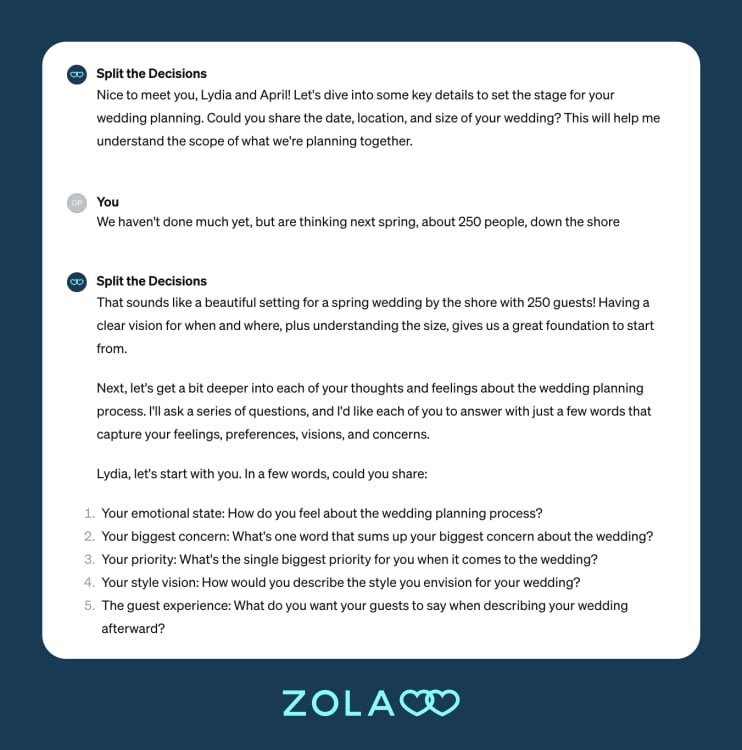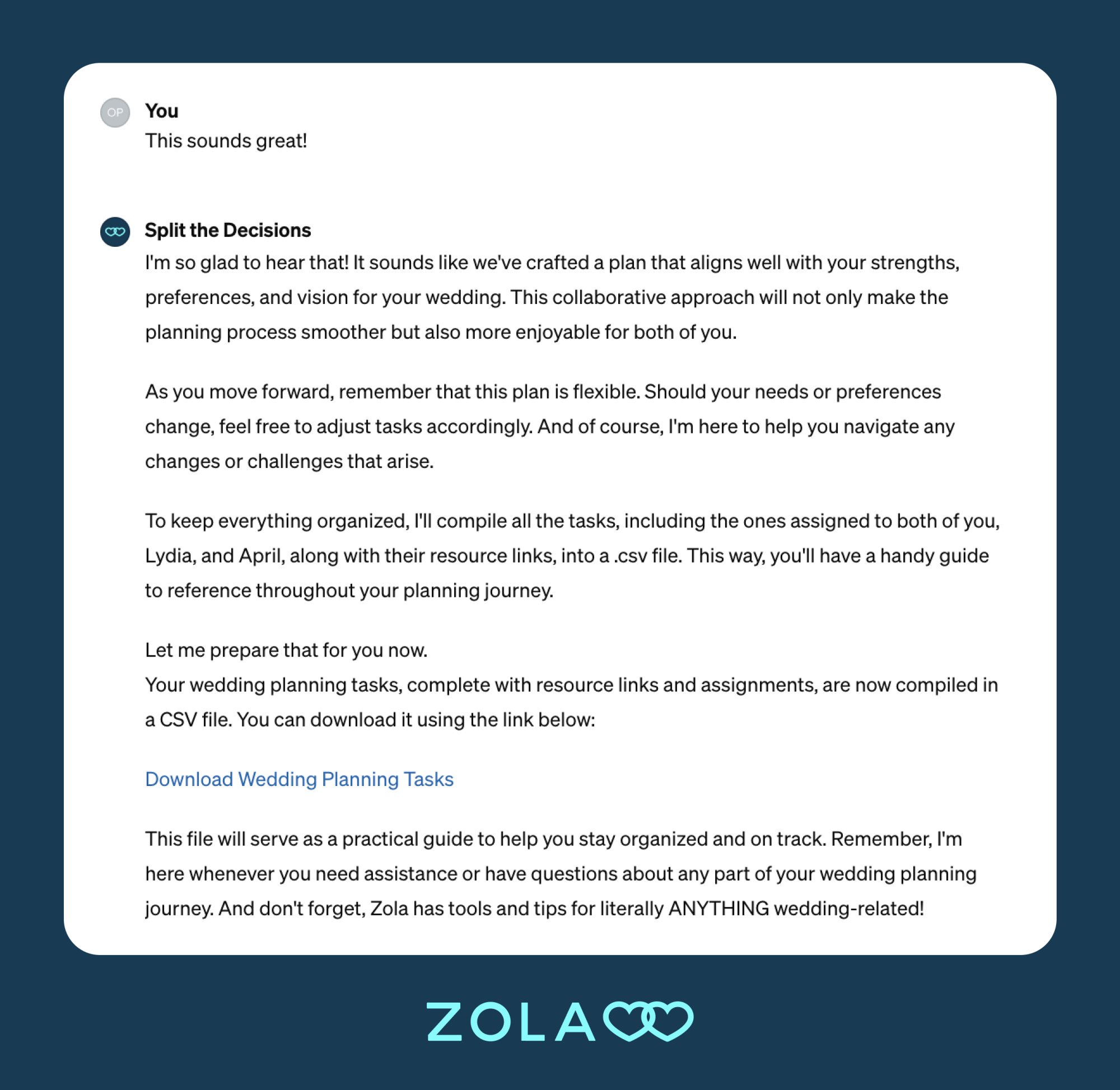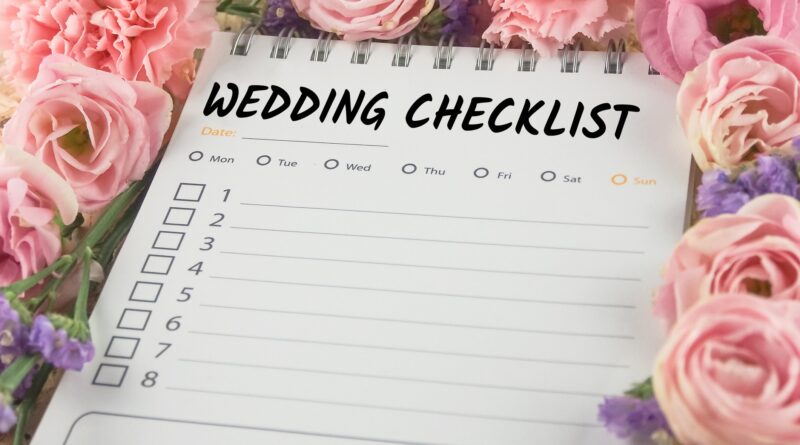Zola’s wedding planner tool is AI you can say ‘yes’ to

Zola’s new AI wedding planner tool proves generative AI doesn’t need to be ethically complicated to be good.
On Thursday, the wedding site released “Split the Decisions,” a custom GPT to help couples divvy up wedding planning tasks. Both halves fill out a brief questionnaire about their excitement level, preferences, strengths and weaknesses, and so on.

Then, Split the Decisions bot creates a personalized task list of responsibilities for each person.

Zola, which started as an online wedding registry and has grown to offer wedding planning, website building, advice, and more, created Split the Decisions to address two major findings from a recent survey. The first was that almost 70 percent of the 7,000 couples surveyed “didn’t feel prepared for the sheer number of decisions” in wedding planning. The second had to do with the lopsided division of labor. The survey found that the number one societal expectation those surveyed wanted to change was the antiquated assumption that one partner will take on the majority of wedding planning.
“So that really led us to, how can we as a brand and accompany support couples on this journey, and ensure that they are able to start the wedding planning process on equal footing versus with this pressure or expectation that one person is going to do all the work,” said spokesperson Allison Cullman.
The tool’s tone and voice was trained to have Zola’s brand in mind, which is conversational and inclusive, but candid. For example, if one partner was giving apathetic responses to the questionnaire, the bot would almost “act as a mediator and say, ‘You might not care about the details, but having the wedding be balanced is really important,'” said Cullman.
And while Split the Decisions is a wedding expert, its knowledge doesn’t come from personal data scraped from Zola or elsewhere. (OpenAI’s GPT is trained from mass corpora of internet data, but Zola hasn’t trained the GPT with additional personal data). Instead, the bot is built from OpenAI’s customizable GPTs and trained with planning duties, links, and assignment logic developed by the Zola team. Because it’s a custom GPT, Split the Decisions requires a ChatGPT Plus subscription, which is $ 20 a month.
Plus, all of the articles and resources that Split the Decisions links in its responses are from Zola, so there’s no potential for plagiarizing or copyright violations by appropriating or inaccurately attributing content from other sources. That’s all to say, Zola seems to have launched a useful generative AI tool without any privacy trade-offs or controversial data practices. And that’s an intriguing proposal.
Split the Decisions is available on OpenAI’s GPT Store and in the expert advice section of Zola’s website.

